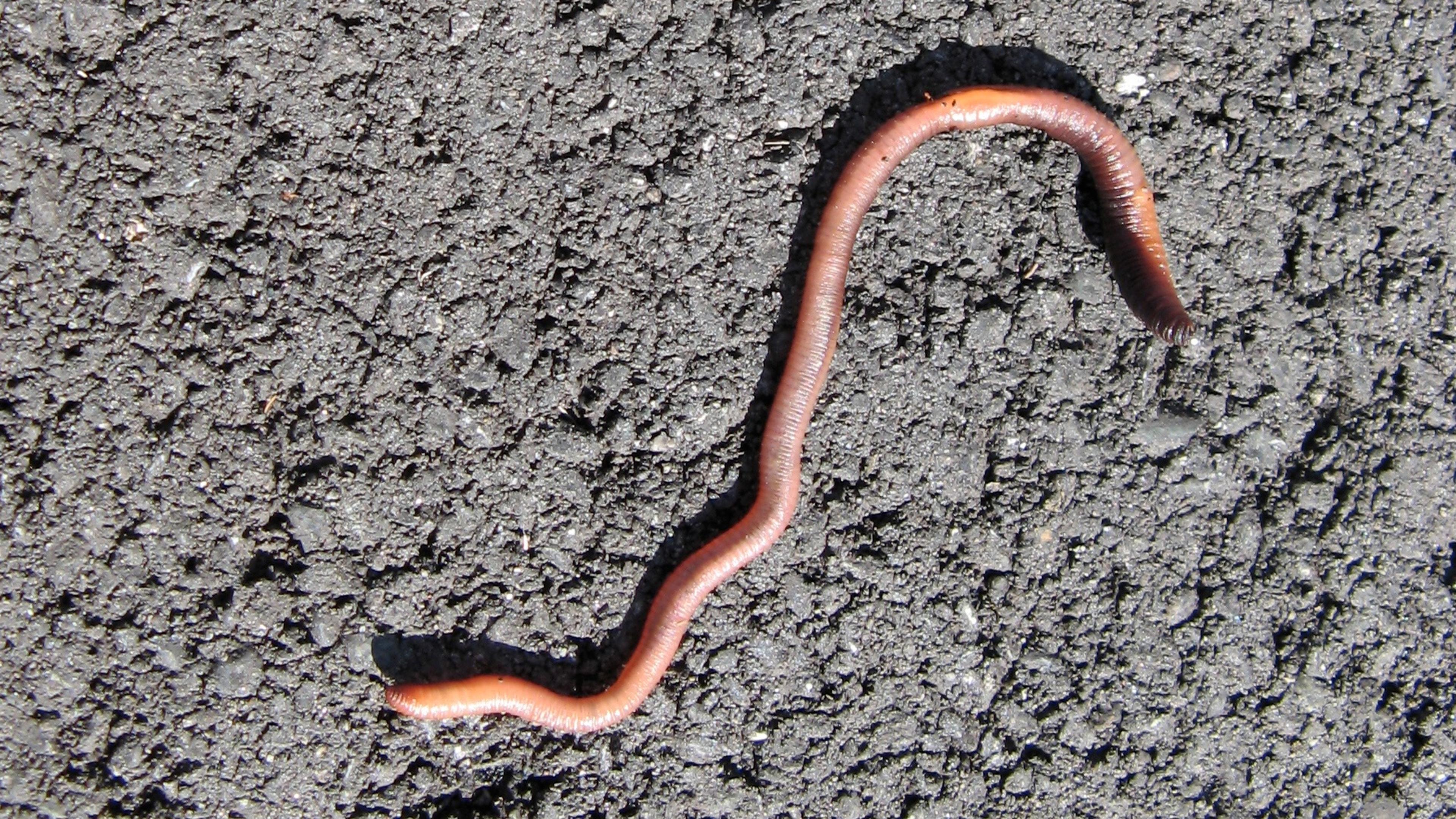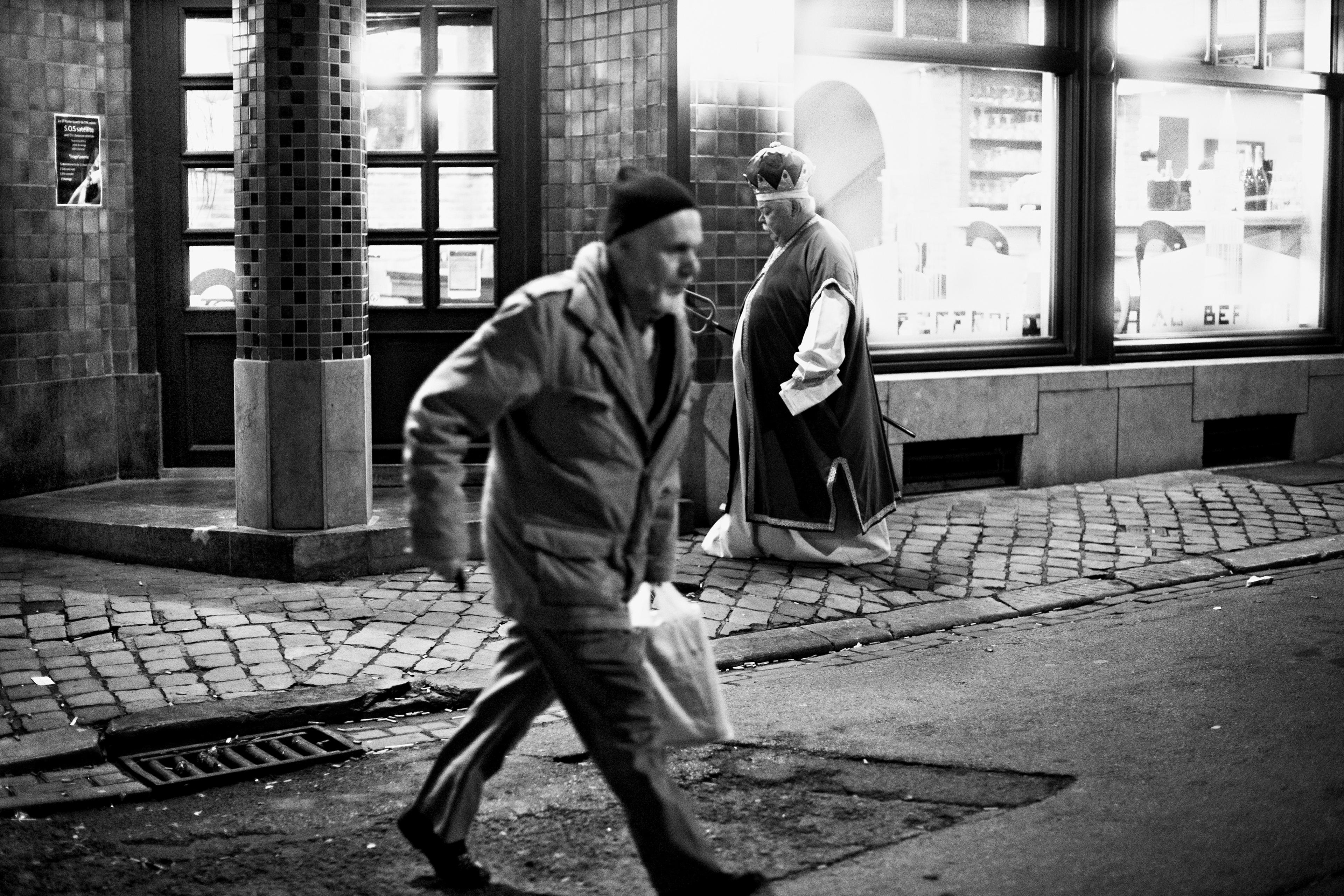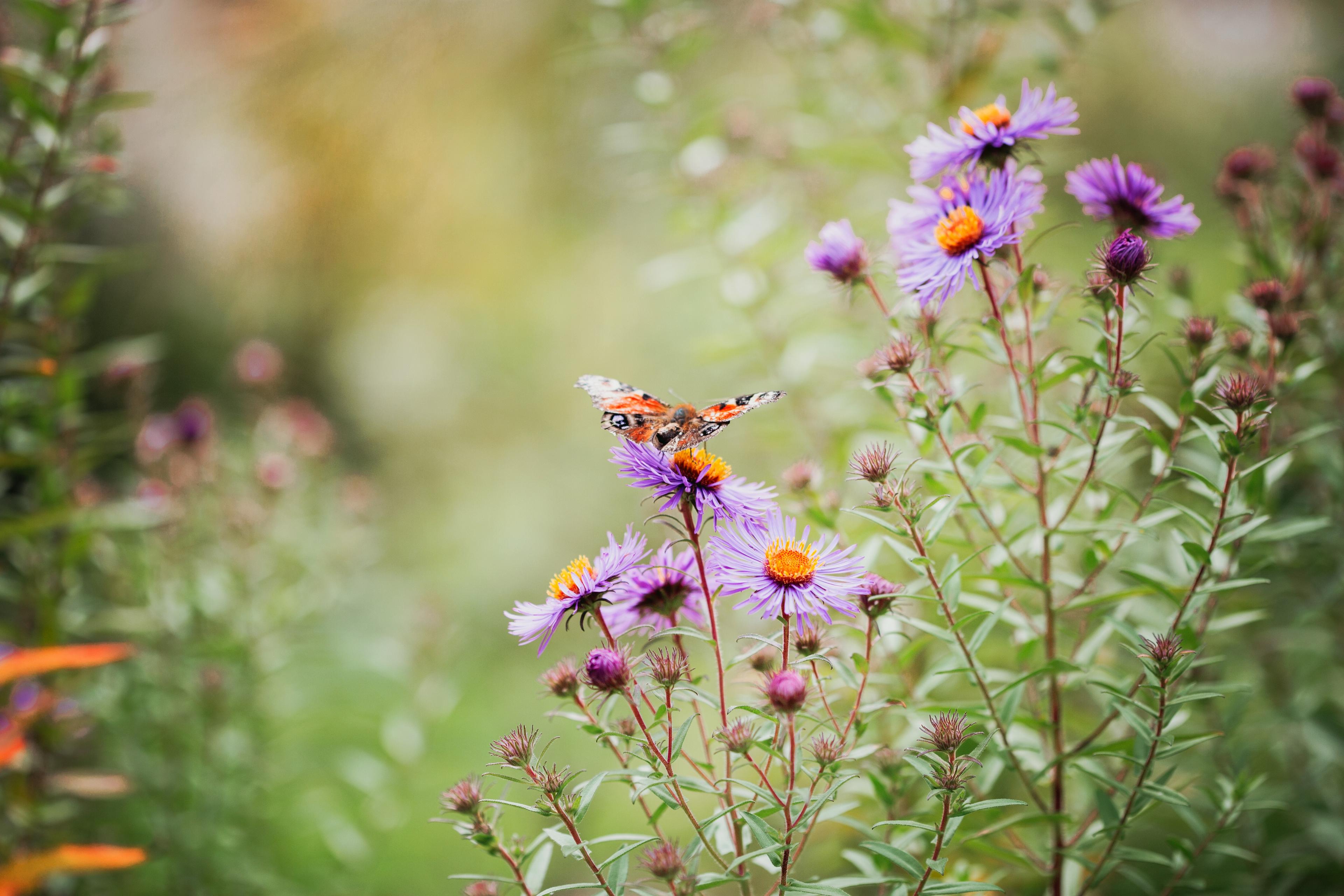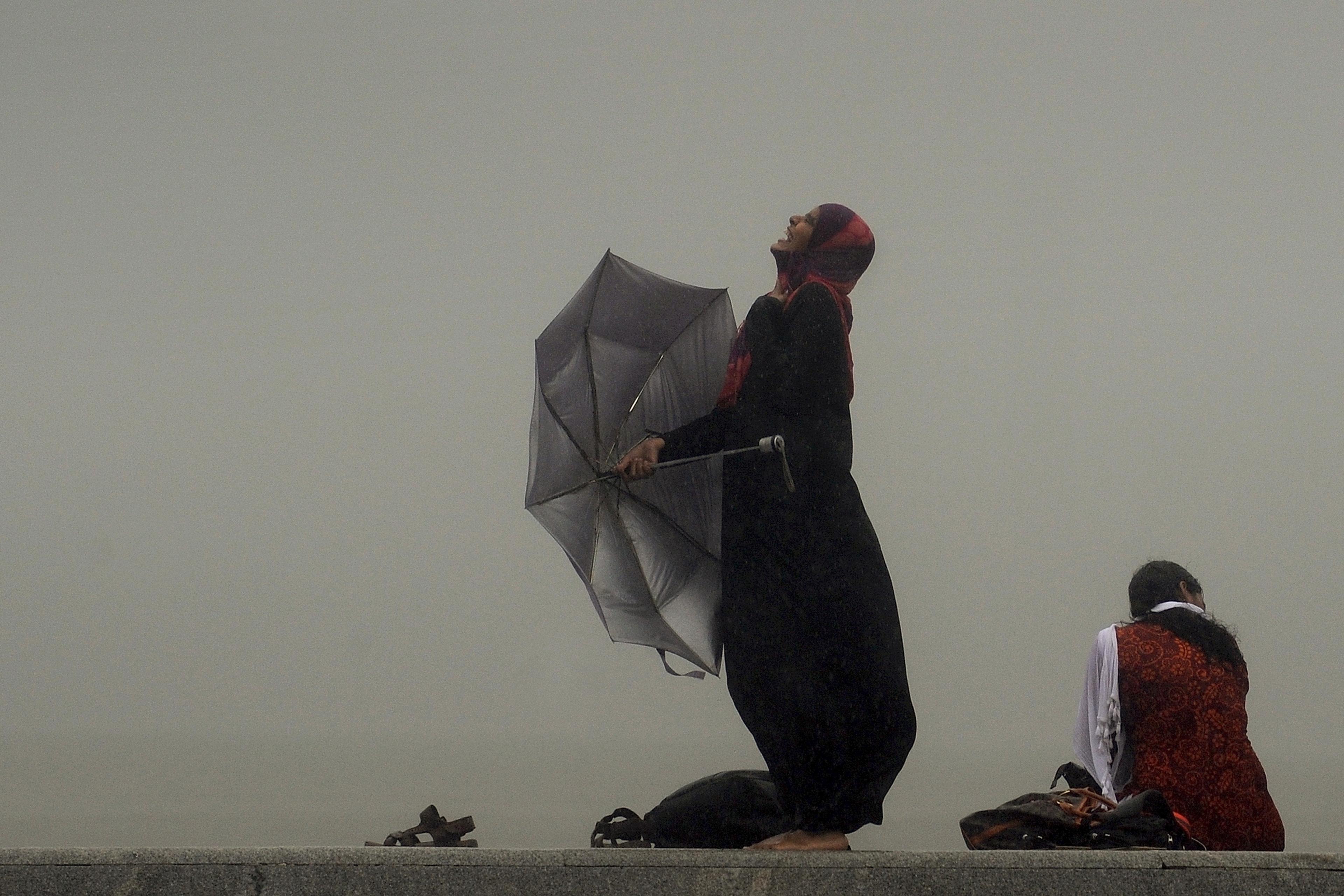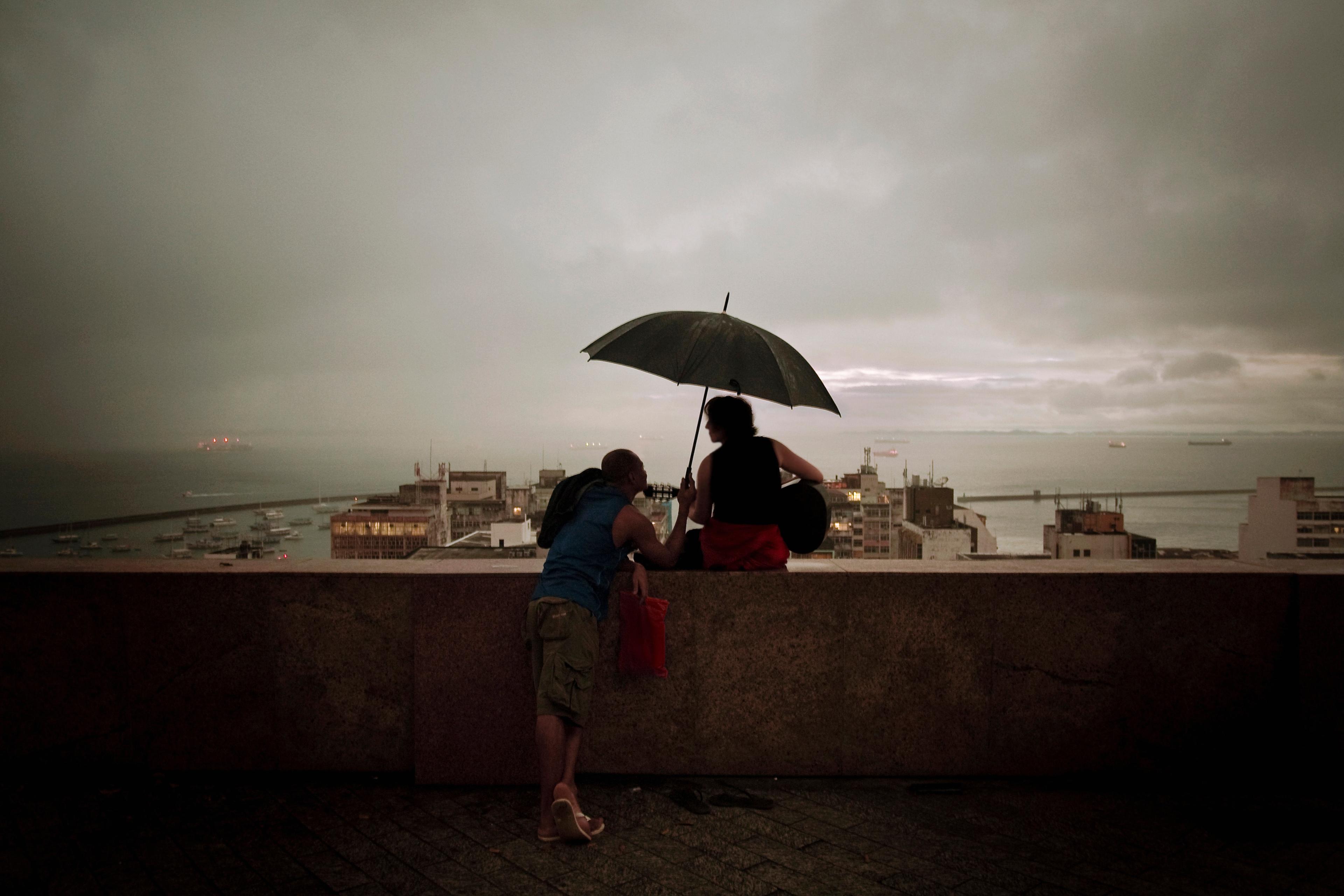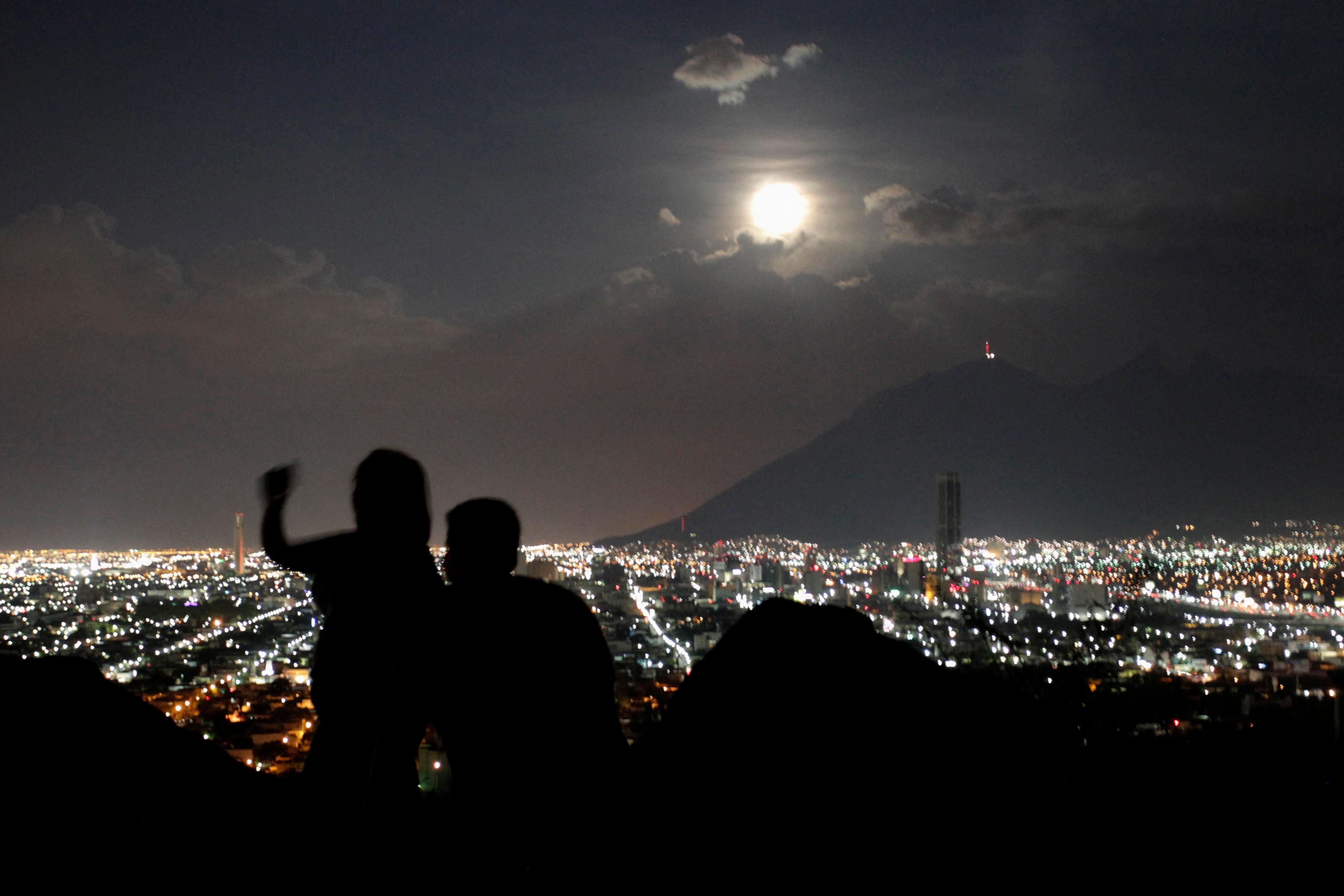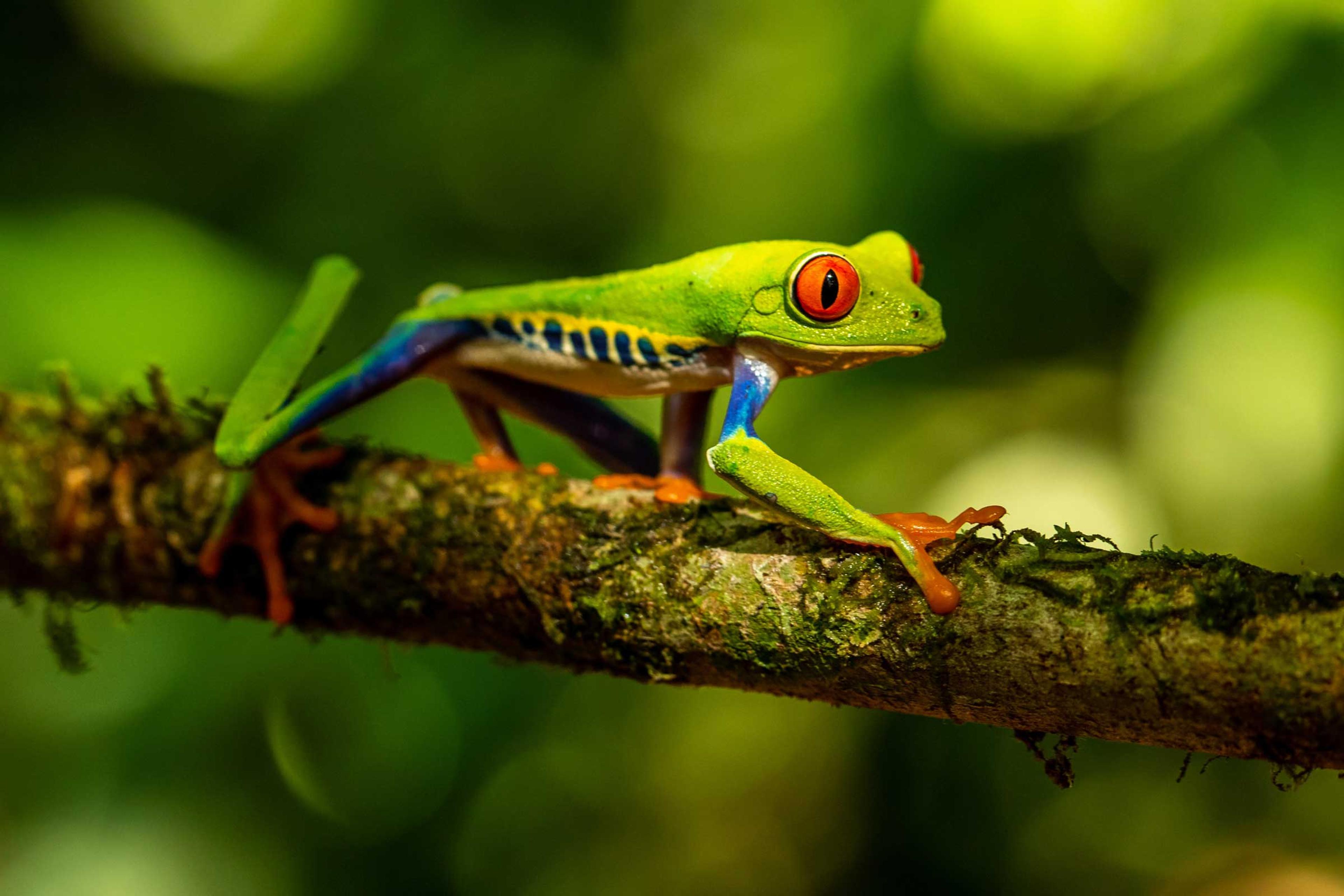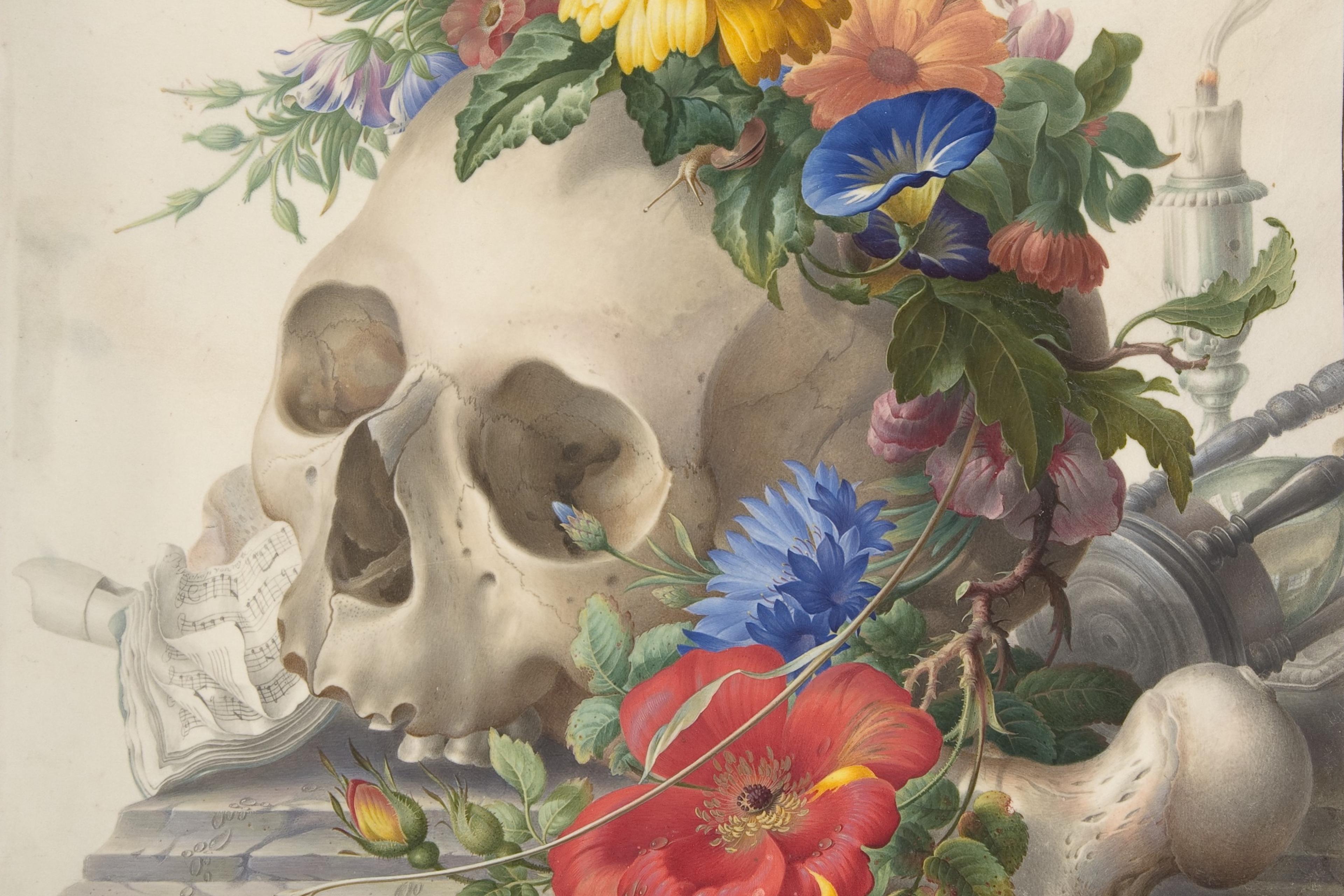During the warm afternoon rains that mark the summertime in Ohio, worms emerge from wet soil. They push their small pink heads up toward the surface of the earth and draw their bodies onto wet grass, where they can breathe fresh air and glide across the ground. But when the rain stops and the sun comes out, those worms that travelled too far onto streets and sidewalks become stuck.
I find them outside my home, writhing in the heat as the sun bakes them alive. Their little bodies twist and turn as they desperately try to return to the safety of the soil beneath the grass. Watching them struggle so violently, one might wonder why they can’t just save themselves by using that energy to wriggle off the street. The worm corpses left behind the day after rain suggest that their journey is more difficult than it seems – on the surface, far from their underground burrows, worms can get stranded. Their task is Sisyphean, their dilemma at once futile and inescapable. For that reason, I like to think that I understand them a little. They’re just trying to get where they’re going.
My worm-rescue protocol is simple and, as far as I can tell, effective. I lift the worms from the sidewalk with a stick or leaf and gently place them in the grass nearby. No worm left behind – that is my motto, and I live by it.
But each time warmer weather approaches, returning us to afternoon rains and the season of the worm, I wonder how much good my rescue efforts are really doing. In an ever-expanding Universe hurtling toward annihilation, it can be difficult to take our Earthly actions seriously. Out there, unimaginably large black holes swallow suns, planets are born from dust, and every moment that passes brings the entire cosmic order closer to heat death. The more we learn about the Universe, the smaller humanity looks. One glimpse at the night sky exposes our cosmic irrelevance. Yet, even when we limit our search for meaning to Earth, finding purpose isn’t easy, either. Our world is full of senseless cruelty and preventable suffering. Across the globe, children are dying unthinkable deaths in wars. Farm animals languish in factory farms. Climate refugees are being displaced. Plastic waste is spreading through the ocean. Food insecurity now impacts more than 2 billion people. It can seem that suffering is everywhere. And what could any of us possibly do to meaningfully change that fact? Where would we even start?
Saving stranded worms is one option. Then again, perhaps my priorities are desperately out of order. Why rescue a worm from the sidewalk and not a fruit fly or a mosquito drowning in a glass of water? Why do we rush to ease the suffering of a dog more easily than that of an ant?
The answers seem to be simple. After all, worms appear to play a more beneficial role in my immediate environment than fruit flies and mosquitoes, which are likely to cause harm and annoyance. Similarly, although ants feel pain, the suffering of a domesticated dog is easier to perceive and harder to ignore. These ‘simple’ answers, however, all rely on a similar bias: a kind of instrumentalism that suggests we should value creatures only for pragmatic reasons. I am more interested in preserving worms that fertilise the compost bins in my backyard than fruit flies that lay eggs on my ripe bananas, and I care more about dogs than many other species likely because I have a pet dog, which brings me joy and a sense of responsibility. While I don’t think this kind of instrumental logic is entirely wrong, it positions my experience above all others. It places more value on creatures that serve a human purpose.
The earthworm strikes me as an organism that just is. It doesn’t need a purpose
As the biologist Joseph Spagna pointed out in his article ‘What Good Are Fruit Flies?’ (2021), the idea that every species ‘has some ultimate purpose’ is misguided. Instead, Spagna argued that ‘the fruit fly’s only imperative is to continue being.’ It doesn’t need a purpose, let alone a human one. I’m starting to agree. Sometimes, things just are.
The earthworm strikes me as another organism that just is. It doesn’t need a purpose. So, what is it? It seems to operate in defiance of what it lacks, especially when compared with a human. It does not have eyes, but it is photosensitive. It does not have lungs, but it breathes. It does not have teeth, but it eats. It does not have ears, but it senses vibrations. It does not have limbs, but it moves. It cannot say so, but it may even love: studies have suggested that some types of worms exhibit offspring-benefitting behaviours charged by what is colloquially known as the ‘love hormone’.
But let’s say it doesn’t matter how similar or different worms are to us. Let’s say it doesn’t matter what they can do for us (even if the answer is: a lot). What about their pain and suffering? Is that a good reason to help them?
Scientists are more divided on the question of how worms experience pain. We know that worms react to pain through nociception, the neural processing of extreme sensations or ‘noxious stimuli’ such as heat or cold that could damage tissues. It’s less clear whether they meaningfully suffer beyond mere physical sensation. So I’m not certain what exactly they’re experiencing as they writhe on the hot ground outside my home.
The question of nonhuman suffering has been considered many times and in many ways over time. In the classic utilitarian text An Introduction to the Principles of Morals and Legislation (1789), Jeremy Bentham challenged established ideas about the abilities and interests of animals: ‘The question is not Can they reason? or Can they talk? but Can they suffer?’
If there was a worm dying right in front of you, would you pick it up and put it in the soil?
The problem is, how do we really know? Let’s say that it’s impossible to know whether they experience suffering: should we still care about what happens to them? And, even more importantly, what are we obligated to do about it?
The moral philosopher Peter Singer’s thought experiment in ‘Famine, Affluence, and Morality’ (1972) suggests that our intuitive willingness to rescue a child who is drowning right in front of us means that we are also obligated to use our resources to save children suffering far away: ‘If it is in our power to prevent something bad from happening, without thereby sacrificing anything of comparable moral importance, we ought, morally, to do it.’
If there was a worm dying right in front of you, would you pick it up and put it in the soil? Does it matter if you do? Whether or not the earthworm suffers in a way that is intelligible to us, it seems obvious to me that preventing it from dying a slow death is a good thing. It allows worms to continue trying to get where they’re going. But how good is it, I wonder? Enough to make us care?
In the book Darwin’s Worms (1999), the psychotherapist Adam Phillips considers Charles Darwin’s fascination with earthworms, highlighting his final scientific book, The Formation of Vegetable Mould Through the Action of Worms (1881). Darwin’s passion for the little animals is conveyed well enough by a section from the dash-laden table of contents alone, which is formatted like a breathless Emily Dickinson poem:
—Can live long under water—Nocturnal—Wander about at night—Often lie close to the mouths of their burrows, and are thus destroyed in large numbers by birds—Structure—Do not possess eyes, but can distinguish between light and darkness—Retreat rapidly when brightly illuminated, not by a reflex action—Power of attention—Sensitive to heat and cold—Completely deaf—Sensitive to vibrations and to touch—Feeble power of smell—Taste—Mental qualities—Nature of food—Omnivorous—
Darwin was particularly fascinated with the ability of earthworms to cycle through organic material. ‘The plough is one of the most ancient and most valuable of man’s inventions,’ Darwin writes, ‘but long before he existed the land was in fact regularly ploughed, and still continues to be thus ploughed by earth-worms.’ Phillips argues that this understanding of planetary renewal was, in part, how the naturalist reckoned with his own mortality, in light of his staggering evolutionary discoveries. Darwin leaves us, Phillips suggests, wondering what would happen ‘if we took earthworms seriously’. What would happen, I wonder, if we considered their experience of life as important as our own? What if we took the time to care about every worm left behind?
I find that, sometimes, thinking about earthworms so much leaves me questioning how I’m using my time. Perhaps I could be doing something better, something more. The choices multiply in front of me, magnified on tip screens and advertisements and cardboard signs. Paper or plastic? Cage-free or free range? Regular or organic? Bottled or tap? Gas or electric? Would you like to round up to donate? Do you want to make a difference? Your monthly gift is urgently needed. And amid the spectacle of choices, I imagine all the wriggling worms – all those I will ever save, and the many more I can’t – accumulating before my eyes to form some vast, incoherent sum. Will I ever save enough? Will I ever know if I’ve done enough to make a difference? And what if I had used all the time I’ve spent saving worms to do something better, kinder, more sacrificial, more helpful? How many worm-lives add up to equal the life of a dog, a whale, a human, a tree?
The worst part is that every moment I spend trying to calculate how much good I’m doing or not doing is a moment wasted. And yet I can’t help it. When I pause to think of all the suffering in the world, I realise I am hardly doing anything. The guilt can be all-consuming. How can we decide what matters, and what must be left behind?
Of course, no matter what I do, how much or how little, it will never be enough. It is impossible to live a full life without doing any harm. I will inevitably make wrong choices, sometimes without knowing it. Even if I devoted my whole self to the pursuit of easing worm suffering, if I spent my whole life stooped over, picking up every worm, I might have missed some greater thing, some larger purpose.
I believe there is space for joy, even amid all this uncertainty and suffering, amid this bad hand we’ve been dealt. The longer we spend despairing about the state of the world and our own inaction, the less time we have to make any kind of difference, to find the elements of life that make it worth living. Even as the world fractures before our eyes, we are here, participating in life. Like the earthworm, like everything, for better or for worse, we are. We cannot spend our lives in indecision, waiting for the perfect intervention. The world changes around us as we idle, as we chase that elusive space between too much and not enough. All the while, cities swarm and swell around us. Rivers flow. Trees fall. Oceans rise. People are born and leave a mark and die. All we have to do is decide what difference we will make, what we will save. Even if it’s just a worm, writhing on a sidewalk in the Ohio sun.
